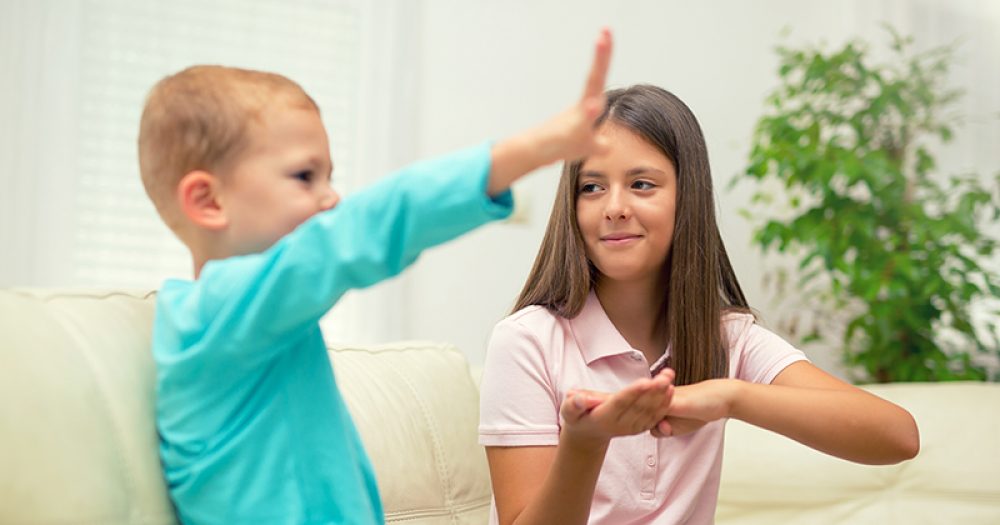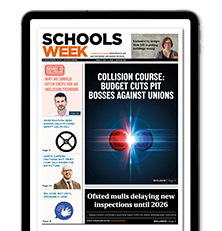The Department for Education is now “open to considering” a British sign language GCSE after previously warning that it would require a “huge number of steps”.
The National Deaf Children’s Society (NDCS) has hailed a “fantastic step in the right direction” after schools minister Nick Gibb revealed the government will be considering the new qualification.
In a written answer to Peter Aldous MP, Gibb said there are no plans to introduce new GCSEs during this parliament “to allow schools a period of stability following the recent reforms”.
However, he continued “the government is open to considering a proposal for a British sign language (BSL) GCSE for possible introduction in the longer term. We have indicated this to Signature, the awarding organisation proposing to develop a GCSE in BSL, and the NDCS.”
This is a change from Gibb’s stance during a parliamentary debate on the subject in March, when he told MPs that “not everything that is taught in schools needs to be a GCSE” and warned that a “huge number of steps would have to be gone through” in order to gain GCSE accreditation for the current BSL qualifications.
He also told MPs that the government had already faced “a very real struggle” with exam boards to persuade them to continue with “small-cohort GCSEs” including Urdu, Russian and Japanese.
Although a pilot BSL GCSE has been prepared by awarding organisation Signature, it had not been put through the “rigorous process” to accredit GCSEs or subjected to Ofqual’s assessment criteria, and Signature itself had not been accredited as a GCSE-awarding organisation by Ofqual.
The debate was called after over 35,200 people signed a petition to make BSL part of the national curriculum. Supporters of the move warn that schools are discouraged from teaching sign language because it does not have the status of a GCSE subject.
A spokesperson for the DfE confirmed the government “will consider proposals for the introduction of a BSL GCSE, for possible introduction in the longer term”.
She added that this would only happen after a “period of stability” for schools to adjust to the current new GCSEs, and said any new qualification would need to meet “rigorous expectations” for content, assessment and regulatory requirements.
A survey of more than 2,000 young people, 700 of whom are deaf, carried out by Signature and the NDCS last year showed that 91 per cent wanted to learn sign language and 92 per cent thought schools should offer a BSL GCSE.
Susan Daniels, the chief executive of NDCS, said creating a BSL GCSE would not be a “quick and easy process” but Gibb’s announcement showed “the government has listened carefully to the powerful, passionate case made by deaf children, young people and their parents”.
However, she warned that too many deaf children were still “failing to reach their potential” and suffering from “cuts to frontline support services”.
Earlier this month, the NDCS warned that support to deaf children in schools will be cut by around £4 million this year, as a third of councils prepared to make cuts. Around one in 10 teachers of the deaf have lost their jobs in the past four years.
Attainment and progress scores of deaf children have also declined in recent years. Figures obtained by the charity show that, in 2017, deaf children scored an average Attainment 8 score of 37.4, down from 41 in 2015, and less than the average score among all pupils which was 46.3.
Deaf pupils’ average Progress 8 score has also fallen, from 0.01 in 2015 to -0.12 in 2017. The average among all children is .03. At GCSE, only 29 per cent of deaf pupils achieve a grade 5 in both English and maths, compared with 42 per cent of all pupils.







This is really good news. http://www.localschoolsnetwork.org.uk/2018/04/break-a-silent-world-with-sign-language-message-from-the-silent-child